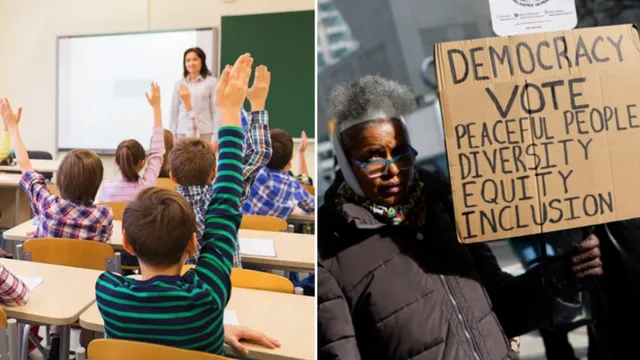
Purdue University shuts down DEI initiatives under federal and state pressure
2025-06-02 08:00- Purdue University announced the immediate closure of its DEI office and programs as part of a transition to a new support initiative.
- The decision reflects mounting pressures from state and federal authorities on public universities regarding diversity initiatives.
- This trend is part of a broader movement among major universities in the United States as they reconsider their DEI strategies.
Express your sentiment!
Insights
In the United States, especially in higher education, there has been a noticeable shift regarding Diversity, Equity, and Inclusion (DEI) initiatives. Recently, Purdue University announced the immediate cessation of its DEI activities and programs. This decision follows increased pressures from both state and federal authorities, which have been advocating for a reevaluation of their approach to diversity initiatives in public universities. The university's statement made it clear that these steps were pivotal for their future as a public and state educational institution. Purdue's actions are part of a broader trend observed among other universities, particularly within the Big Ten conference, including significant institutions such as the University of Michigan and Ohio State University. These universities have also begun scaling back their DEI offices and initiatives, prompted by similar pressures and a political climate that has been increasingly critical of such programs. For instance, the University of Michigan is shuttering its Office of Diversity, Inclusion, and Belonging, while staff members from these departments are being offered chances to apply for positions in different areas of the university. Alongside the closing of DEI offices, Purdue will transition its previous DEI programs into the newly formed Boilermaker Opportunity Program Plus. This initiative aims to encompass support for all academic programs in a way that improves outcomes for current and future students, thus still maintaining a level of support for diverse populations within the university. Despite the termination of the DEI programs, cultural centers on campus will remain operational, functioning as vital resources for community engagement and student support. The ending of DEI initiatives at Purdue University serves as a significant move towards a new educational strategy that prioritizes different values aligned with their mission. By refocusing their resources and efforts, the leadership claims to be protecting the academic integrity of their institutions while striving to offer equitable support for all students amidst changing political expectations. This development not only signals a shift in Purdue's operational policies but also underlines a growing national conversation surrounding the concept of diversity in education and the impact of political discourse on institutional policies.
Contexts
The impact of Diversity, Equity, and Inclusion (DEI) program closures on students has become a significant issue in educational institutions across the country. As DEI programs are designed to create an inclusive environment, their closure can have profound effects on the student body, particularly among marginalized groups. Students benefit from DEI initiatives in various ways, such as increased representation, support networks, and resources that cater to their unique needs. The abrupt removal of these programs may lead to feelings of isolation, anxiety, and reduced academic performance for those who heavily rely on the support that these programs provide. Moreover, the lack of DEI programs risks perpetuating systemic inequalities, as students from underrepresented backgrounds may experience additional challenges when navigating their educational pathways without the necessary support structures in place. Furthermore, the closure of DEI programs may also contribute to a less inclusive campus culture. An environment that lacks diverse perspectives can stifle intellectual engagement and limit students' ability to learn from one another. This can result in a diminished educational experience that fails to prepare students for the diverse world they will encounter after graduation. Many employers are increasingly prioritizing diversity and inclusion in their hiring practices, and students cutting ties with DEI initiatives may find themselves at a disadvantage in an increasingly competitive job market. The implications of shutting down DEI programs extend beyond individual students, impacting the overall campus community and environment. Additionally, research indicates that inclusive educational environments positively affect all students, not just those from marginalized backgrounds. By engaging with DEI initiatives, all students develop empathy, critical thinking, and cultural awareness, skills that are essential in our global society. The closure of these programs can result in a homogenous educational experience that lacks exposure to diverse viewpoints, ultimately hindering the personal and professional growth of the entire student population. Moreover, the conversation around diversity in higher education is not just about representation but also about fostering belonging, where every student feels valued and included. In conclusion, the closure of DEI programs poses a significant threat to students' academic success, mental well-being, and future employment opportunities. Educational institutions must recognize the critical role that DEI initiatives play in supporting not only underrepresented students but the entire campus community. The commitment to equity and inclusion must remain a priority, ensuring that all students can thrive in an educational environment that values diversity. Institutions that prioritize the support and engagement of diverse populations will ultimately cultivate a more innovative, equitable, and prepared student body, ready to meet the challenges of a complex world.